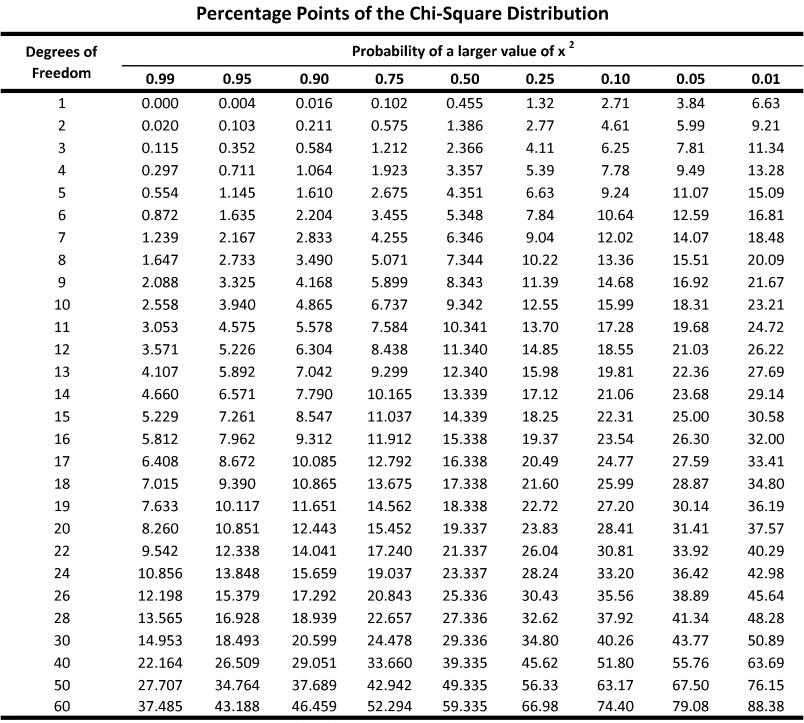$\newcommand{\szdp}[1]{\!\left(#1\right)} \newcommand{\szdb}[1]{\!\left[#1\right]}$ Problem Statement: Let $Y_1,\dots,Y_n$ be a random sample from the probability density function given by $$f(y|\theta)= \begin{cases} \dfrac1\theta\,m\,y^{m-1}\,e^{-y^m/\theta},&y>0\\ 0,&\text{elsewhere} \end{cases} $$ with $m$ denoting a known constant.
- Find the uniformly most powerful test for testing $H_0:\theta=\theta_0$ against $H_a:\theta>\theta_0.$
- If the test in 1. is to have $\theta_0=100, \alpha=0.05,$ and $\beta=0.05$ when $\theta_a=400,$ find the appropriate sample size and critical region.
Note 1: This is Problem 10.80 in Mathematical Statistics with Applications, 5th. Ed., by Wackerly, Mendenhall, and Sheaffer.
Note 2: This is cross-posted here.
My Work So Far:
- This is a Weibull distribution. We construct the likelihood function $$L(\theta)=\szdp{\frac{m}{\theta}}^{\!\!n}\szdb{\prod_{i=1}^ny_i^{m-1}} \exp\szdb{-\frac1\theta\sum_{i=1}^ny_i^m}.$$ Now we form the inequality indicated in the Neyman-Pearson Lemma: \begin{align*} \frac{L(\theta_0)}{L(\theta_a)}&<k\\ \frac{\displaystyle \szdp{\frac{m}{\theta_0}}^{\!\!n}\prod_{i=1}^ny_i^{m-1} \exp\szdb{-\frac{1}{\theta_0}\sum_{i=1}^ny_i^m}} {\displaystyle \szdp{\frac{m}{\theta_a}}^{\!\!n}\prod_{i=1}^ny_i^{m-1} \exp\szdb{-\frac{1}{\theta_a}\sum_{i=1}^ny_i^m}}&<k\\ \frac{\displaystyle \theta_a^n \exp\szdb{-\frac{1}{\theta_0}\sum_{i=1}^ny_i^m}} {\displaystyle \theta_0^n \exp\szdb{-\frac{1}{\theta_a}\sum_{i=1}^ny_i^m}}&<k\\ \frac{\theta_a^n}{\theta_0^n}\,\exp\szdb{-\frac{\theta_a-\theta_0} {\theta_0\theta_a}\sum_{i=1}^ny_i^m}&<k\\ n\ln(\theta_a/\theta_0)-\frac{\theta_a-\theta_0} {\theta_0\theta_a}\sum_{i=1}^ny_i^m&<\ln(k)\\ n\ln(\theta_a/\theta_0)-\ln(k)&<\frac{\theta_a-\theta_0} {\theta_0\theta_a}\sum_{i=1}^ny_i^m. \end{align*} The end result is $$\sum_{i=1}^ny_i^m>\frac{\theta_0\theta_a}{\theta_a-\theta_0} \szdb{n\ln(\theta_a/\theta_0)-\ln(k)},$$ or $$\sum_{i=1}^ny_i^m>k'.$$
- We have to discover the distribution of $\displaystyle \sum_{i=1}^ny_i^m.$ I claim that the random variable $W=Y^m$ is exponentially distributed with parameter $\theta.$ Proof: \begin{align*} f_W(w) &=f\szdp{w^{1/m}}\frac{dw^{1/m}}{dw}\\ &=\frac{m}{\theta}\,(w^{1/m})^{m-1}\,e^{-w/\theta}\szdp{\frac1m}\,w^{(1/m)-1}\\ &=\frac1\theta\,w^{1-1/m}e^{-w/\theta}\,w^{(1/m)-1}\\ &=\frac1\theta\,e^{-w/\theta}, \end{align*} which is the distribution of an exponential with parameter $\theta,$ as I claimed. It follows, then, that $\displaystyle\sum_{i=1}^ny_i^m$ is $\Gamma(n,\theta)$ distributed, and hence that $\displaystyle\frac{2}{\theta}\sum_{i=1}^ny_i^m$ is $\chi^2$ distributed with $2n$ d.o.f. So the RR we can write as that region where $$\frac{2}{\theta}\sum_{i=1}^ny_i^m>\chi_\alpha^2,$$ with the $2n$ d.o.f. Let $$U(\theta)=\frac{2}{\theta}\sum_{i=1}^ny_i^m.$$ Then we have \begin{align*} \alpha&=P\szdp{U(\theta_0)>\chi_\alpha^2}\\ \beta&=P\szdp{U(\theta_a)<\chi_\beta^2}. \end{align*} So now we solve \begin{align*} \frac{2}{\theta_0}\sum_{i=1}^ny_i^m&=\chi_\alpha^2\\ \frac{2}{\theta_a}\sum_{i=1}^ny_i^m&=\chi_\beta^2\\ \frac{\chi_\alpha^2\theta_0}{2}&=\frac{\chi_\beta^2\theta_a}{2}\\ \frac{\chi_\alpha^2}{\chi_\beta^2}&=\frac{\theta_a}{\theta_0}. \end{align*} So we choose $n$ so that the $\chi^2$ values corresponding to the ratio given work out. The ratio of $\theta_a/\theta_0=4,$ and we choose $\chi_\alpha^2$ on the high end, and $\chi_\beta^2$ on the low end so that their ratio is $4,$ by varying $n$. This happens at d.o.f. $13=2n,$ which means we must choose $n=7.$ For this choice of $n,$ we have the critical region as $$\frac{2}{\theta_0}\sum_{i=1}^ny_i^m>23.6848.$$
My Question: This is one of the most complicated stats problems I've encountered yet in this textbook, and I just want to know if my solution is correct. I feel like I'm "out on a limb" with complex reasoning depending on complex reasoning. I'm fairly confident that part 1 is correct, but what about part 2?

